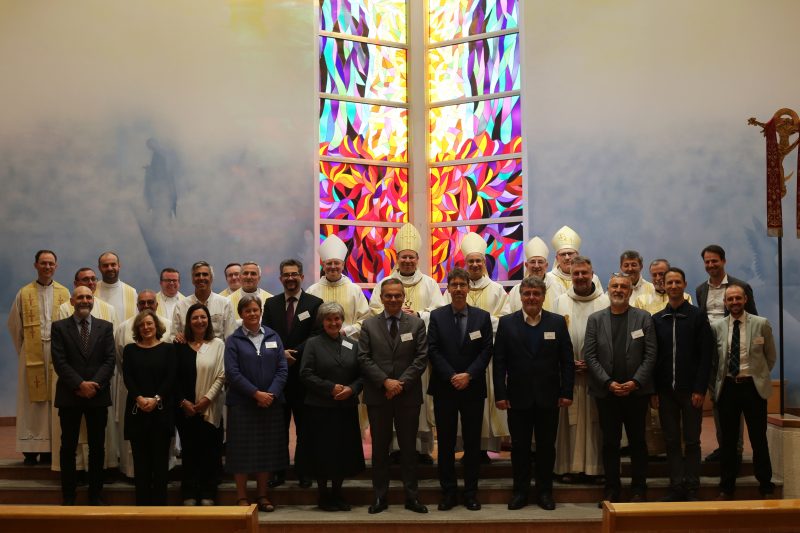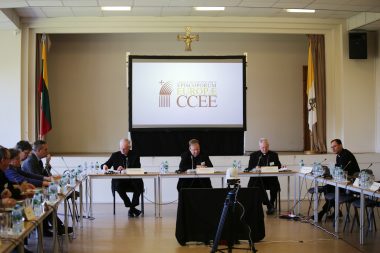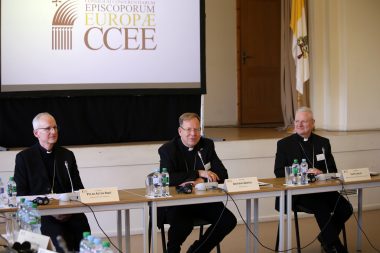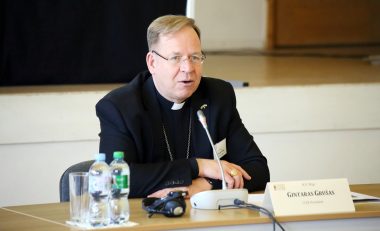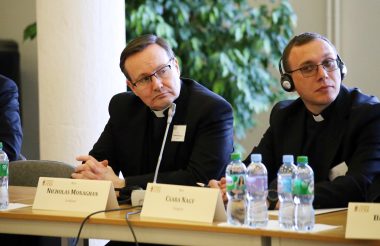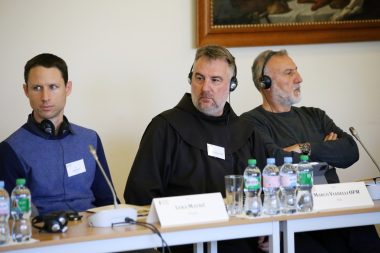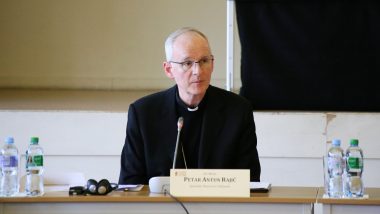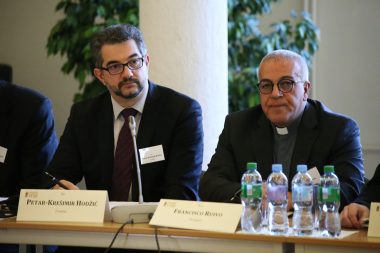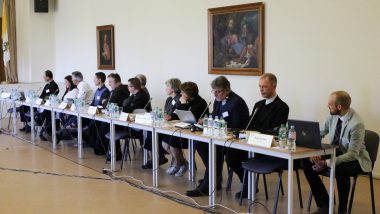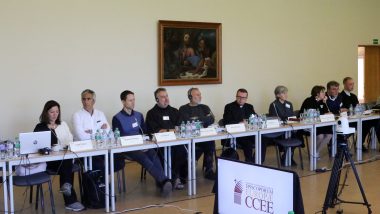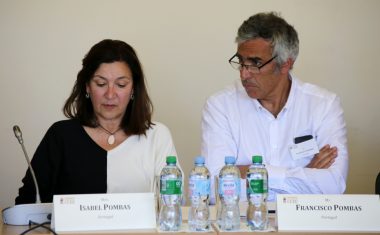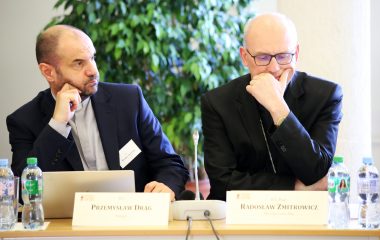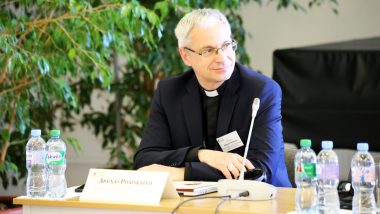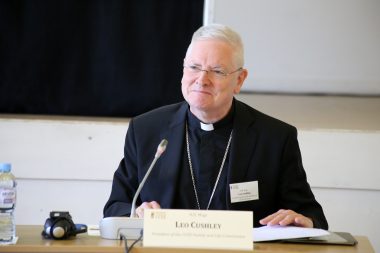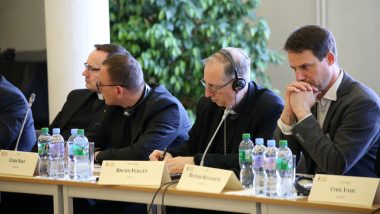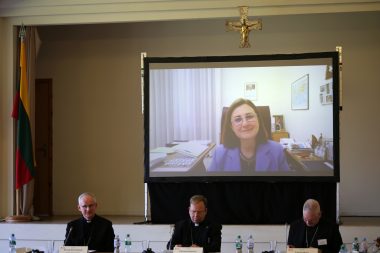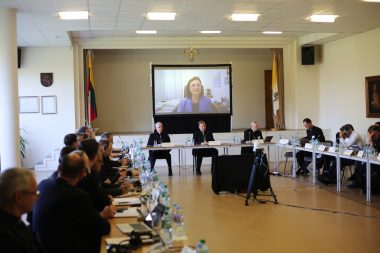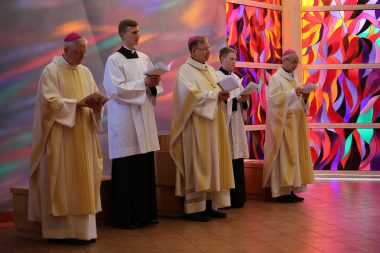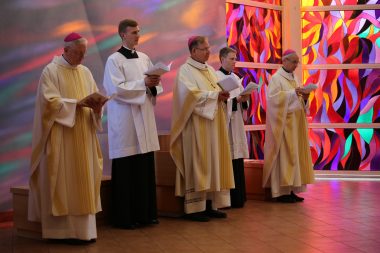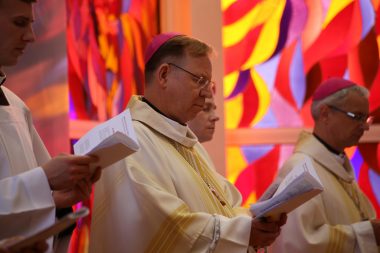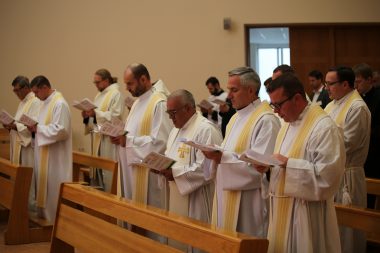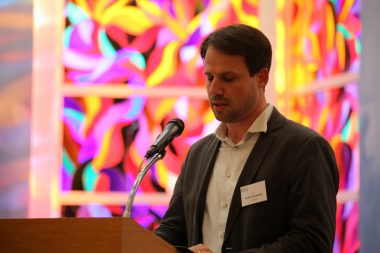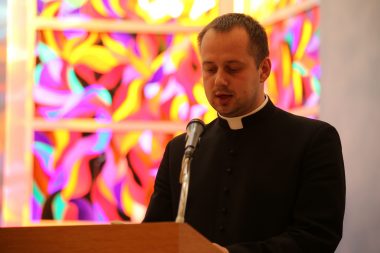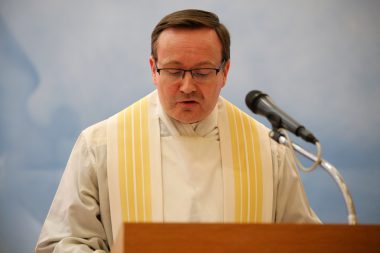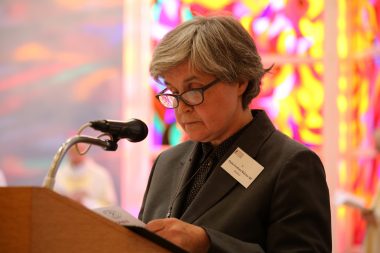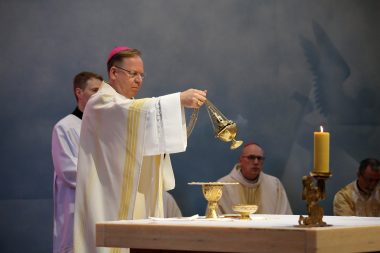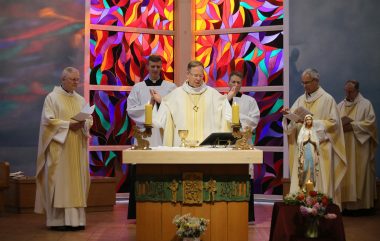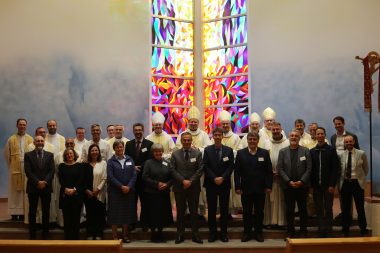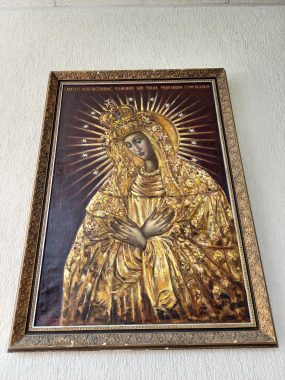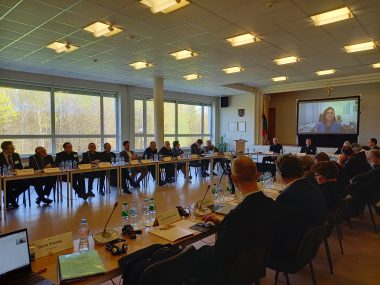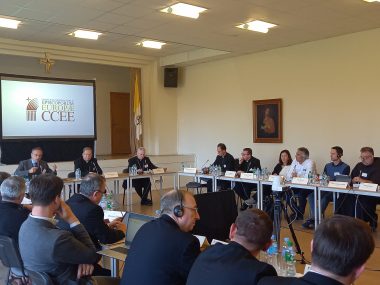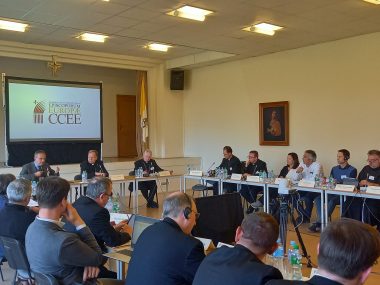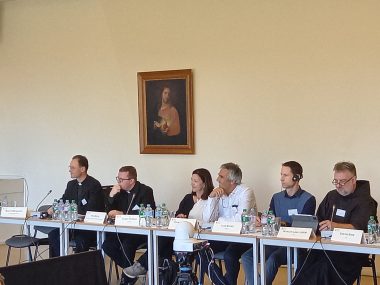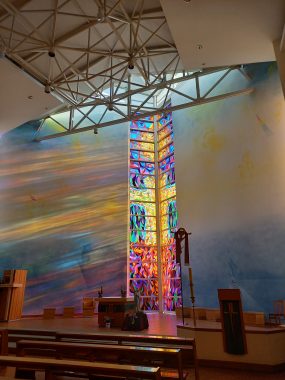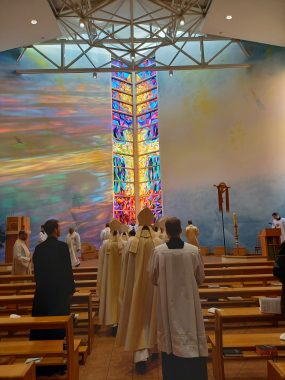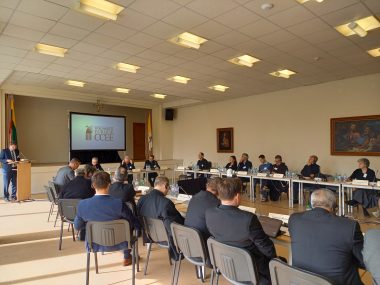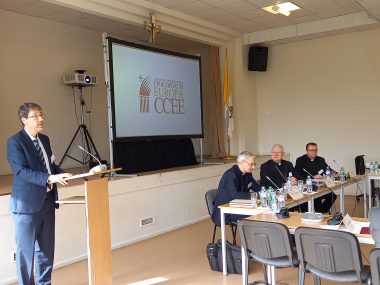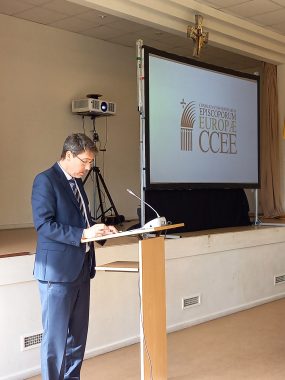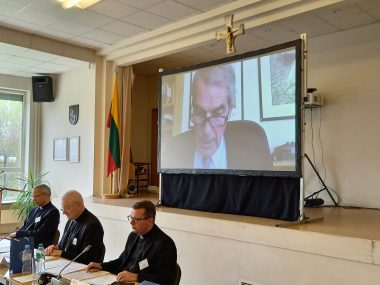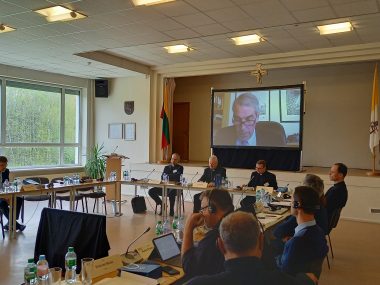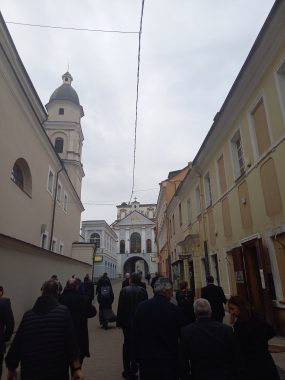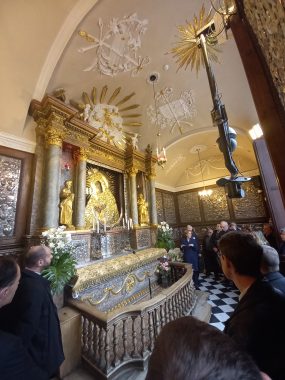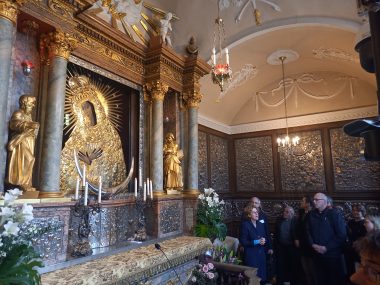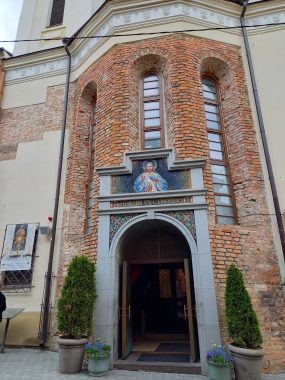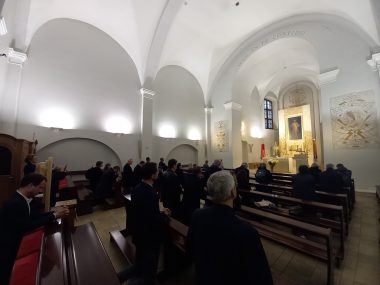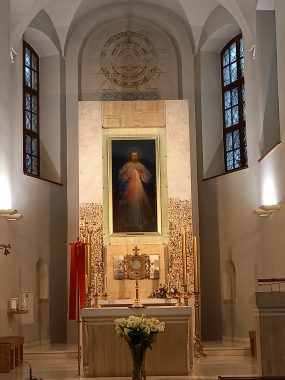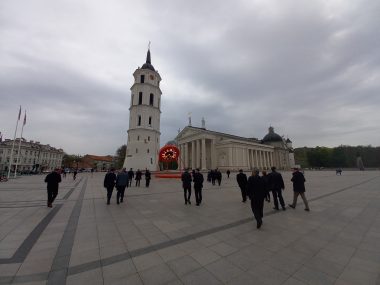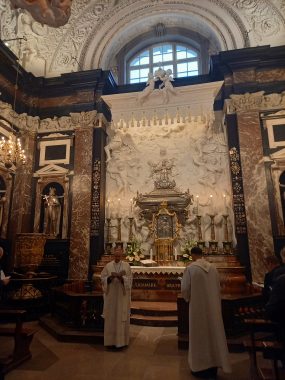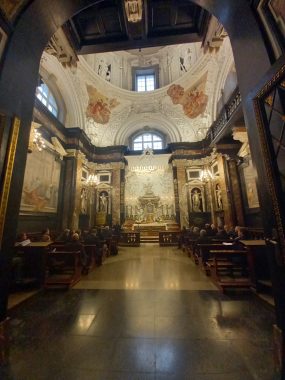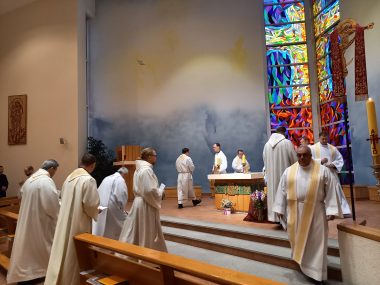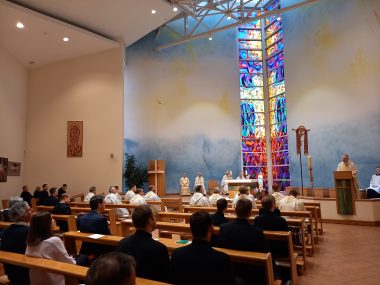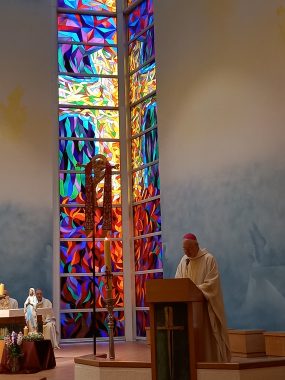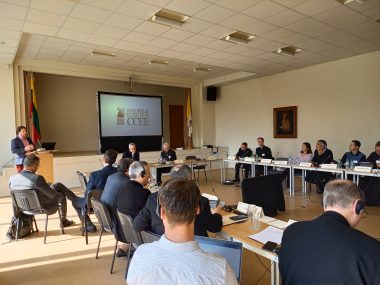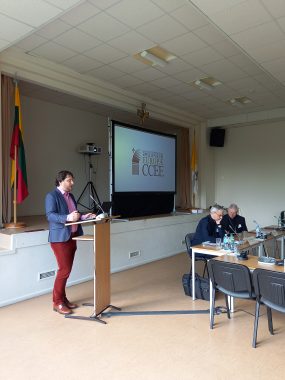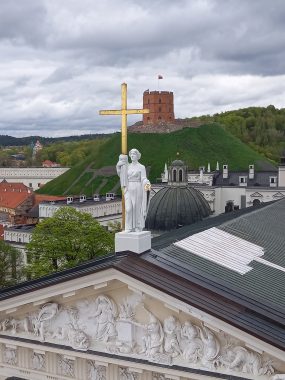From 10 to 12 May 2022, the first meeting of the CCEE Family and Life Commission was held at St Joseph’s Seminary in Vilnius, Lithuania. The meeting had been scheduled to be two years earlier but had been postponed because of the pandemic.
The national delegates for Family and Life of the Bishops’ Conferences throughout Europe met to reflect on the theme ‘Church in Europe: a family of families on the move. The path to the world meeting in June’. In his opening address, the Commission’s President, H.E. Msgr Leo Cushley, expressed the hope that through these days of study and discussion, we would be better prepared to contribute to the World Meeting of Families that is to be held in Rome in June 2022, and that in being better prepared, the current meeting itself would also bear much fruit.
Different specialist areas within the field of marriage and family life were covered by the speakers. Prof. Gabriella Gambino, Undersecretary of the Dicastery for the Laity, Family and Life, in her report, “The Amoris Laetitia Family: a Year of Assessment and Pastoral Outlooks”, illustrated the many and various initiatives undertaken by the Dicastery to help the Church to know and appreciate the richness of catechesis and pastoral solutions that the Holy Father has presented to the Church through the Apostolic Exhortation Amoris Laetitia. The fraternal exchange that took place after the presentation allowed the delegates to share with Prof. Gambino their own experiences of the “Amoris Laetitia Family” Year, which seems to have been successful in many dioceses across Europe.
Prof. Stephan Kampowski, lecturer in philosophical anthropology at the Pontifical John Paul II Theological Institute for the Sciences of Marriage and the Family in Rome, addressed the topic: ‘Family relationships and personal identity’. Starting from the assumption that friendship relationships imply a choice while family relationships do not, he recalled that our human relationships are both biological and personal, and we receive our full human identity from these biological and personal ways of relating. The family, in particular, helps to establish a human identity because it is in the family that we are biologically and personally connected in a particular way. Prof. Kampowski pointed out that through the taboo of incest, the family protects the identity of individuals who become overly complex, because it keeps relationships with other family members simple. This same taboo calls the family out of itself and forces it, in a way, into relationships with other families. In this way, the family becomes the basis for the creation of a healthy society.
Mr Antoine Renard, Honorary President of FAFCE, contributed to the conference by highlighting the role of Catholic family associations in the political and social spheres. He stressed that families can evangelise simply by being families and that the role of these family associations is to represent cultural and political bodies to make this happen.
The last speaker was social anthropologist Saulius Matulevičius, whose presentation showed how the Christian concept of marriage changed the order of relationships from bond-family-marriage to bond-marriage-family, a sequence that has been challenged in the 21st century, as marriage has been seen by many as an imposition of the State and/or religion. Prof. Matulevičius emphasised the novelty of the Christian concept that love is a crucial part of marriage, a concept rooted in the fact that marriage, in the Christian context, is considered a covenant relationship of three persons. This implies the couple opening themselves to a third in the person of Jesus Christ, who is God, who is love. Furthermore, Matulevičius raised the question of whether marriage is considered a cultural norm for society today. In the past, marriage, with few exceptions, was the only possible trajectory for a person’s life. In today’s Western societies, which are characterised by a great deal of choice, marriage as the only possibility for life has turned into one choice among many.
This first meeting of the Family and Life Commission began the work of creating a network of representatives from the European Bishops’ Conferences, preparing these same representatives to take part in the World Meeting of Families that is to be held soon in Rome. Through these newly created networks and through discussions and presentations, it is hoped that, as the Commission consolidates, much will be achieved at the European level, making possible a more meaningful participation in the upcoming World Meeting of Families.

